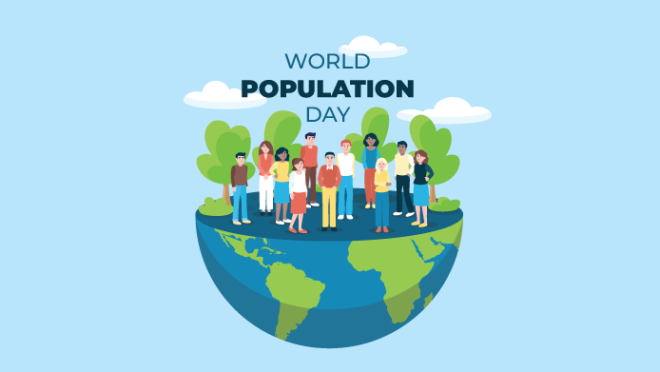Rethinking population growth on World Population Day
Rethinking population growth on World Population Day

The thought of population growth becoming a reason for mass destruction had always plagued the classical economists.
Even in 1970, a famous study by Heinz von Foerster predicted that if the current population keeps on increasing and the economic factors such as land and capital stay the same, the world will meet its end on 13 November 2026.
Looking back now, it seems a bit ridiculous. It is 2025, in this age, people are not so pessimistic about the increase in population. Elon Musk famously touted the need to maintain the current rate of population growth to avoid labour shortages, economic stagnation and an increase in social burdens in aging societies across the globe. However, many seem to take this as a justification for his many children with different partners.
Many nations today are facing the challenges of population decline. The workforce of a country relies on its 18–50 year old demographics, but due to modernity, the nuclear lifestyle has led to a sharp decline in population growth. That is why, countries with high GDPs such as Korea, Japan and other European nations are all struggling to maintain a stable economy with their declining population.
This, in effect, is a cause for economic turmoil because the healthcare, social welfare and other safety nets are all taxing for even a healthy vibrant economy.
However, despite the shift in the need for more population, the UN still emphasises the need for a controlled and manageable rate of population growth.
Its Nine Standards to uphold humane family planning emphasises the need for availability, accessibility and the acceptability of family planning commodities. This campaign is targeted towards poorer nations, as they often struggle with diseases, epidemics and lack the proper resources to sustain a healthy population.
However, this outdated model of the UN has been debunked by many scientists, chief among them is Joseph A Schumpeter, a Harvard economist.
Schumpeter argues, “A numerous and increasing population was the most important symptom of wealth; it was the chief cause of wealth; it was Wealth itself -the greatest asset for any nation to have.”
In his view, population growth is not a byproduct of prosperity rather it generates prosperity.
Having the narrative shifted towards nuanced discursive arguments, the UN’s outdated charter still reflects the significance of spreading proper information about the need and importance for a nation to maintain and promote its population growth, as it increases the capability to achieve economic prosperity. At the same time the adaptability to sustain the excess population will inevitably increase with time, this is the modern theory behind today’s neo-classical view of economics.


